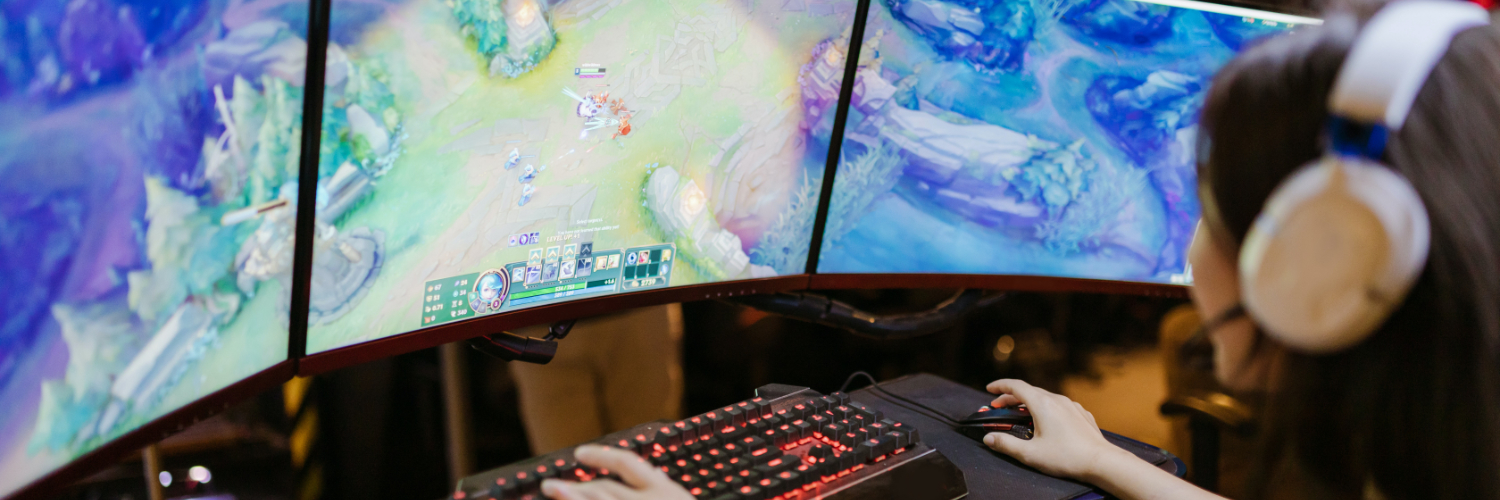
Understanding toxicity in multiplayer online games: The roles of national culture and demographic variables
Zusammenfassung
Autoren:
Bastian Kordyaka, Jeanine Krath, Solip Park, Henrik Wesseloh, Samuli Laato
Datum:
2022
Typ:
Konferenzbeitrag
Konferenz:
55th Hawaii International Conference on System Sciences
Kordyaka, B., Krath, J., Park, S., Wesseloh, H., & Laato, S. (2022). Understanding toxicity in multiplayer online games: The roles of national culture and demographic variables. 55th Hawaii International Conference on System Sciences (HICSS), 2908–2917. http://hdl.handle.net/10125/79693
Kordyaka, Bastian, et al. “Understanding Toxicity in Multiplayer Online Games: The Roles of National Culture and Demographic Variables.” 55th Hawaii International Conference on System Sciences (HICSS), 2022, pp. 2908–17, http://hdl.handle.net/10125/79693.
Kordyaka, B., J. Krath, S. Park, H. Wesseloh, and S. Laato. 2022. “Understanding Toxicity in Multiplayer Online Games: The Roles of National Culture and Demographic Variables.” In 55th Hawaii International Conference on System Sciences (HICSS), 2908–17. http://hdl.handle.net/10125/79693.
B. Kordyaka, J. Krath, S. Park, H. Wesseloh, and S. Laato, “Understanding toxicity in multiplayer online games: The roles of national culture and demographic variables,” in 55th Hawaii International Conference on System Sciences (HICSS), 2022, pp. 2908–2917, [Online]. Available: http://hdl.handle.net/10125/79693.
@inproceedings{Kordyaka2022,
abstract = {Toxic behavior (TB) is a negative response to in-game frustration in multiplayer online games (MOG) that can ruin the playing experience, causing financial damage to MOG operators. Understanding the drivers of TB is an important step to curb the behavior. In this work, we consult the model of national culture (MNC) as well as demographic variables (e.g., education, gender, and age) as antecedent variables of TB using an exploratory design. We surveyed players of League of Legends and Dota 2 with two samples, based on the MNC, from North America (n=155) and India (n=119). We observed significant cultural differences in TB, with higher levels of self-reported toxicity in the Indian sample. In both samples, consistent with previous findings, age was negatively associated with TB. However surprisingly, there was a statistically significant difference among the two groups in terms of the relationship between education and TB.},
author = {Kordyaka, Bastian and Krath, Jeanine and Park, Solip and Wesseloh, Henrik and Laato, Samuli},
booktitle = {55th Hawaii International Conference on System Sciences (HICSS)},
pages = {2908--2917},
title = {{Understanding toxicity in multiplayer online games: The roles of national culture and demographic variables}},
url = {http://hdl.handle.net/10125/79693},
year = {2022}
}


